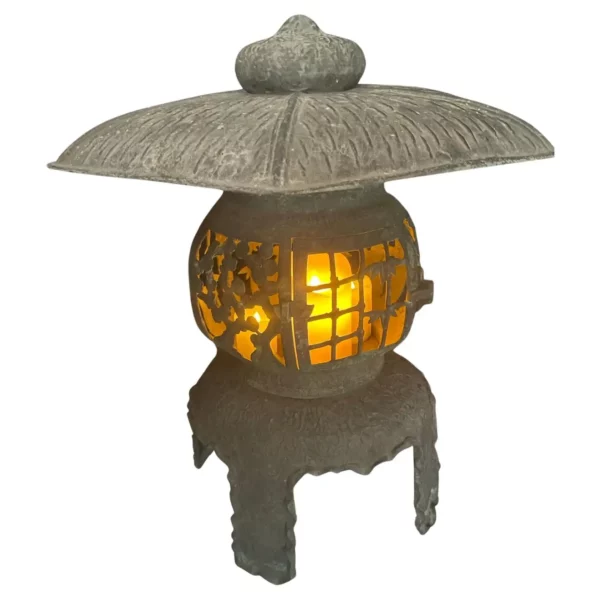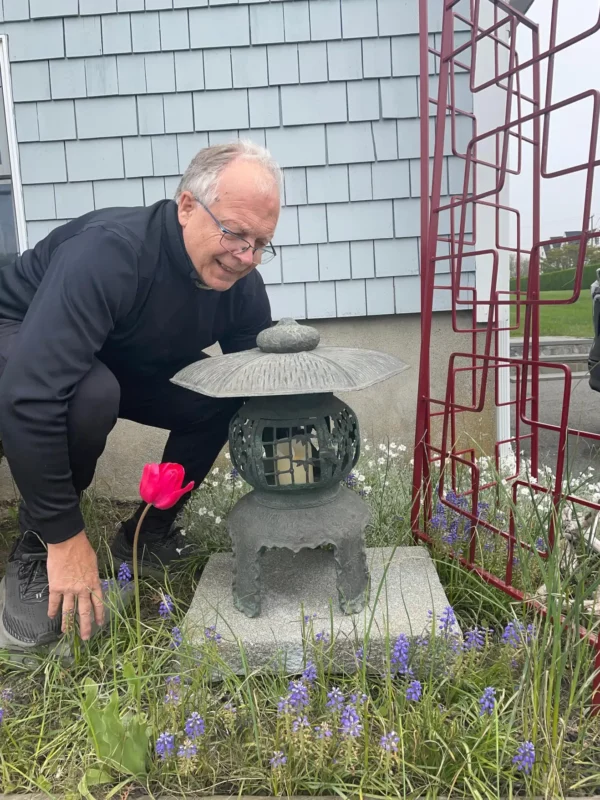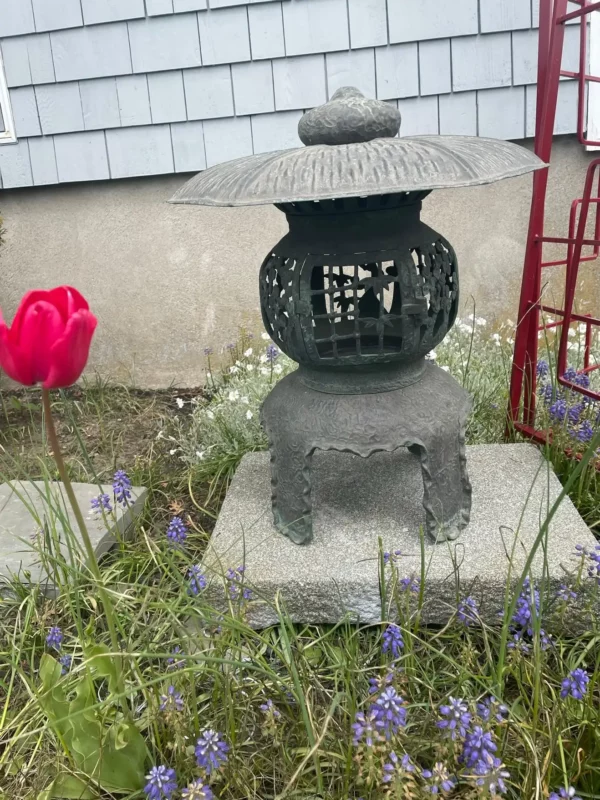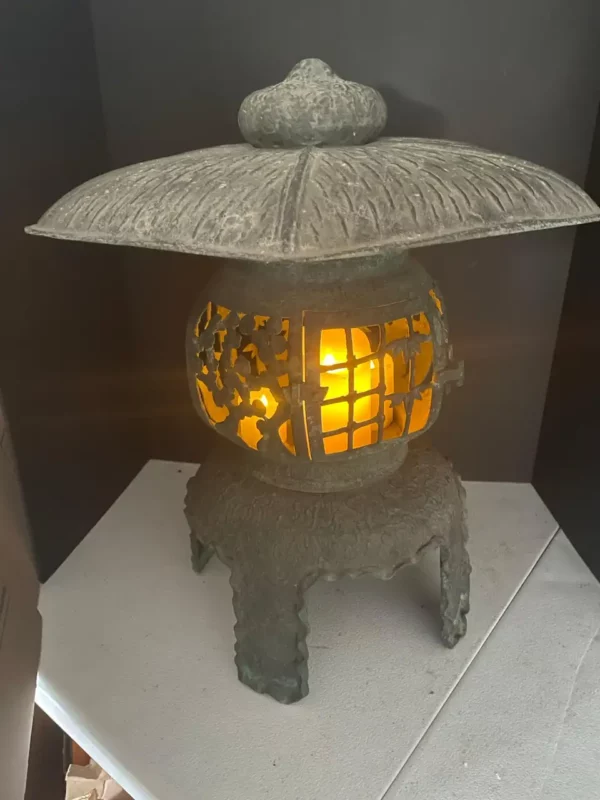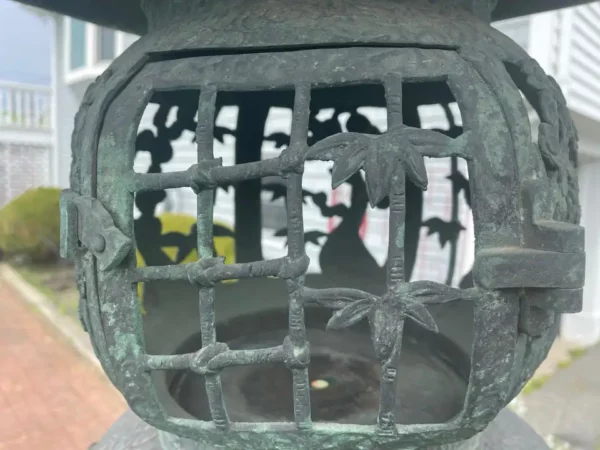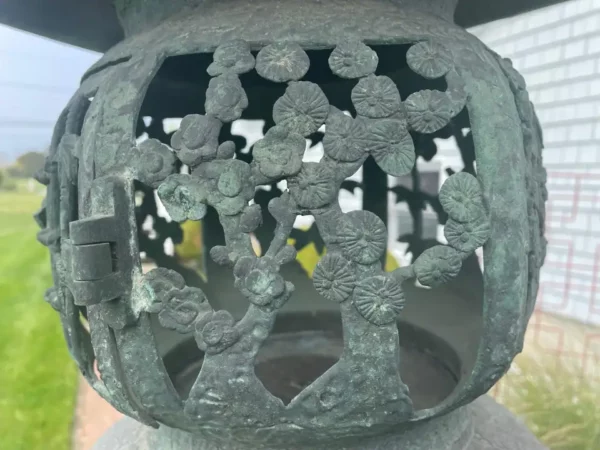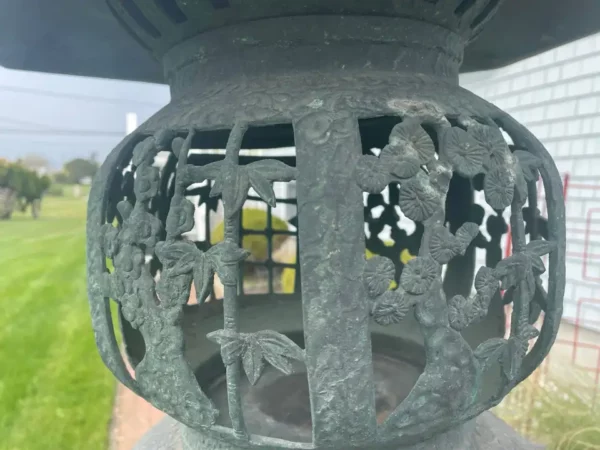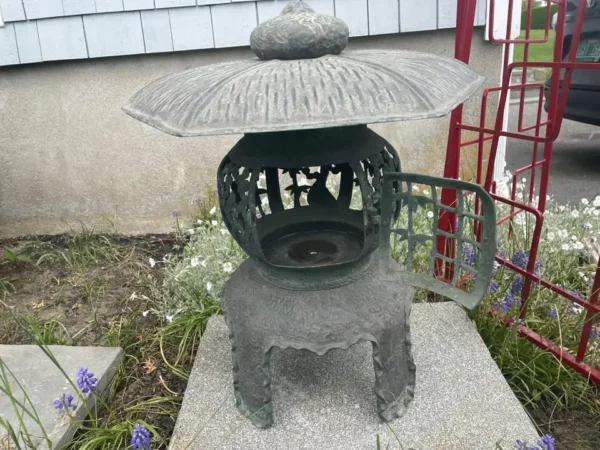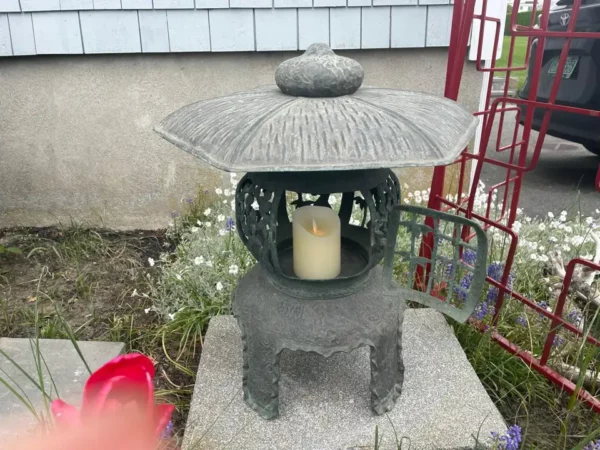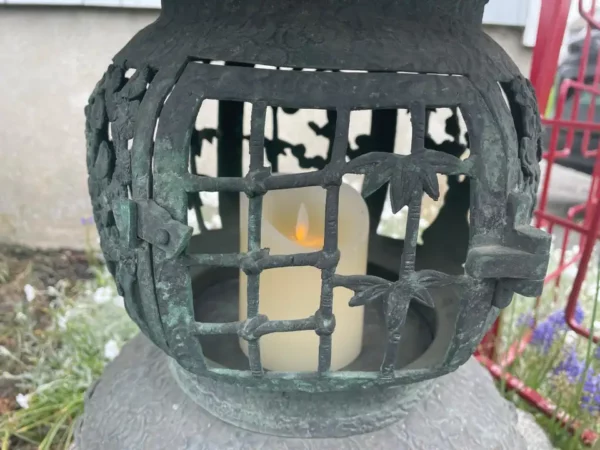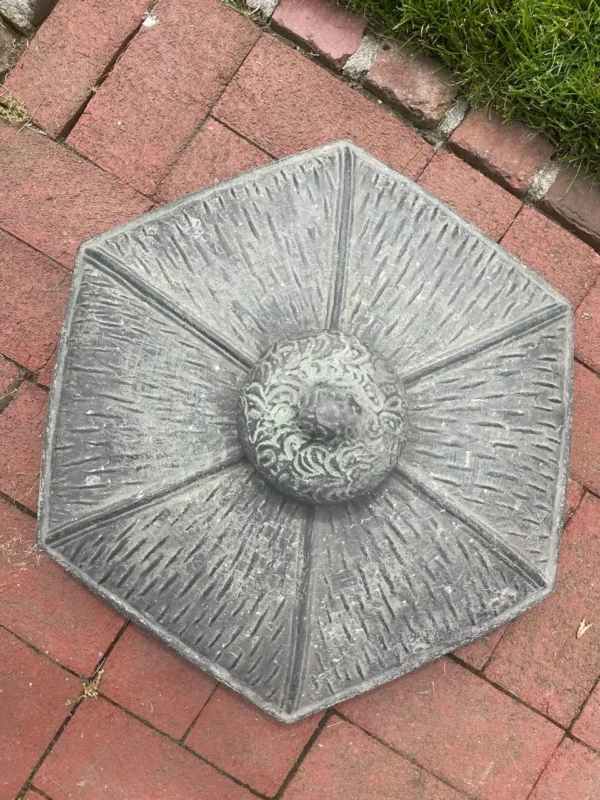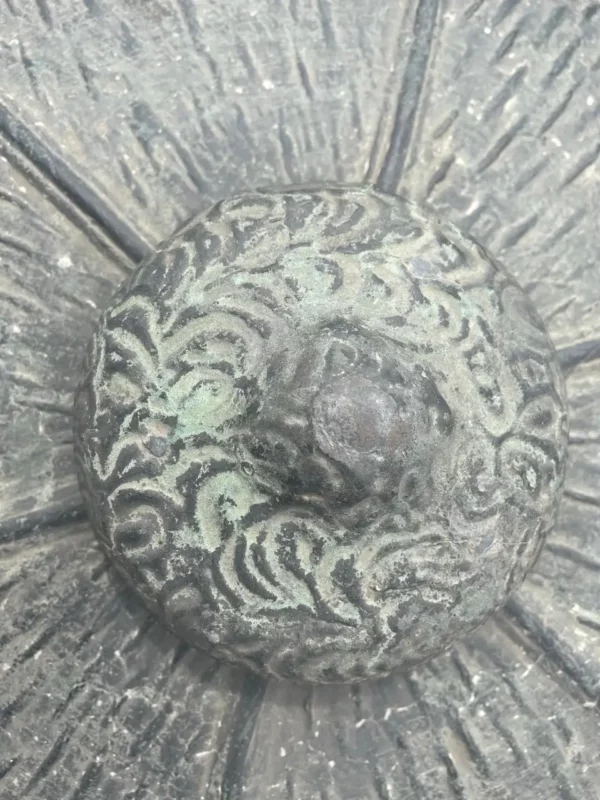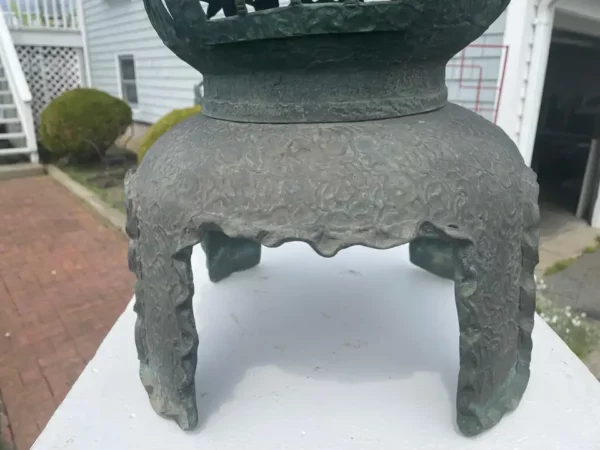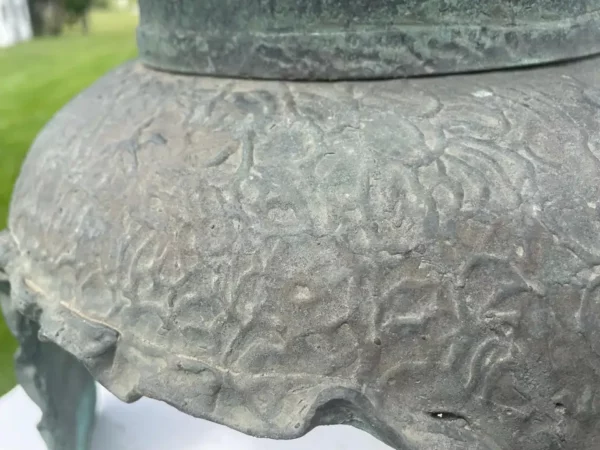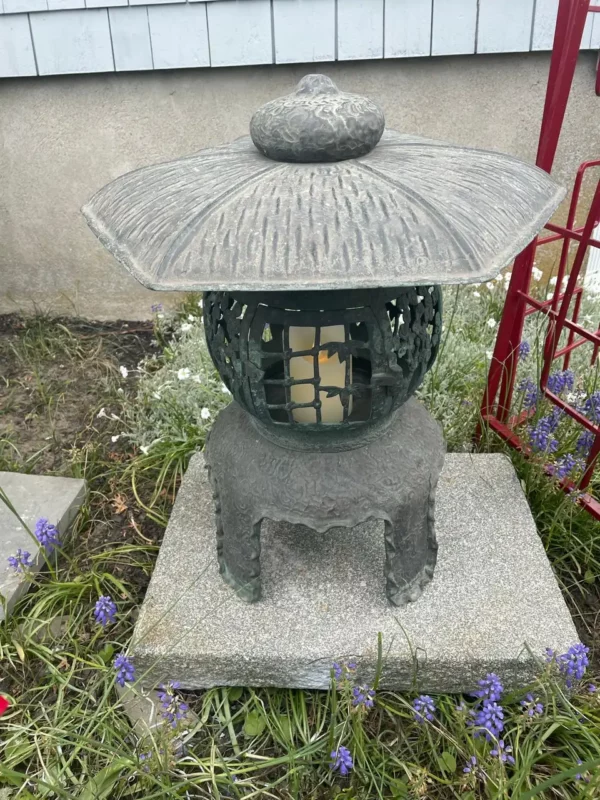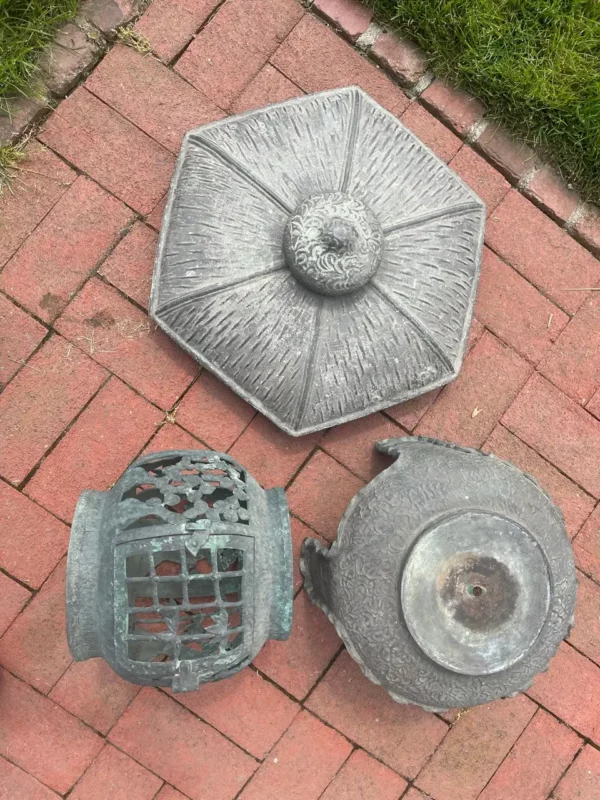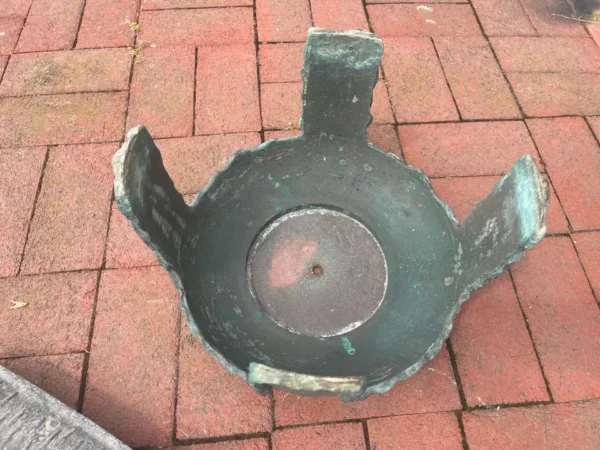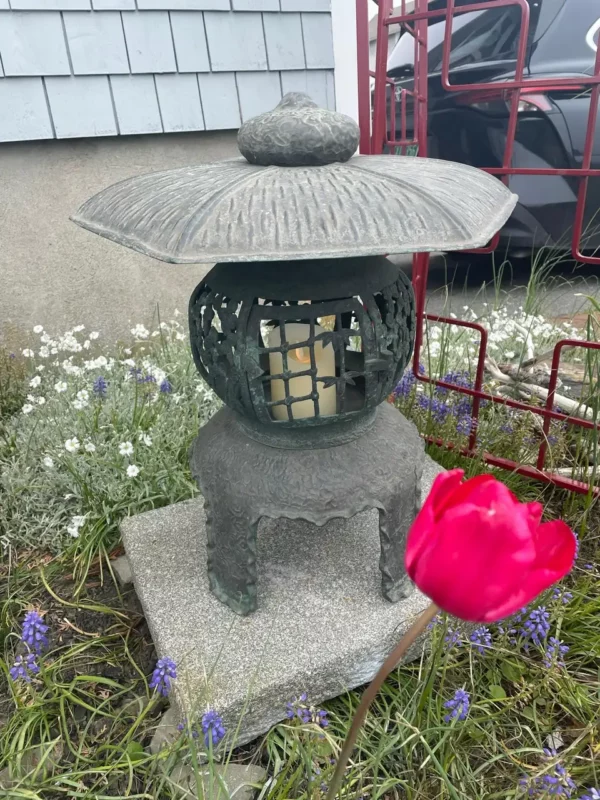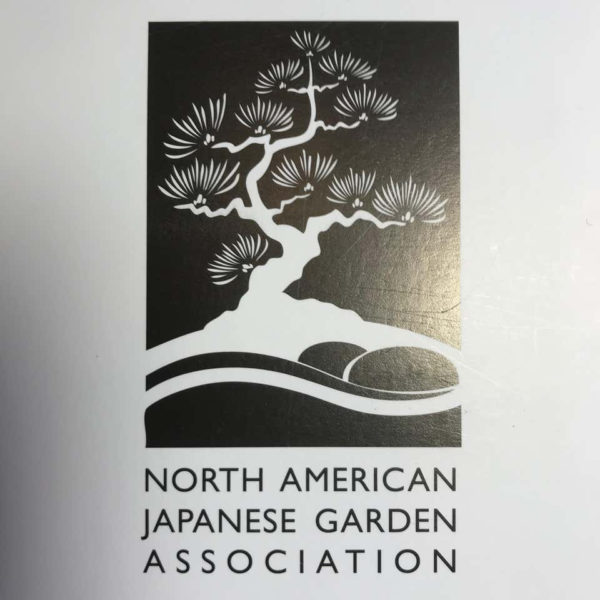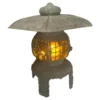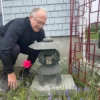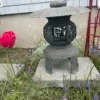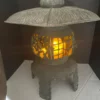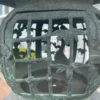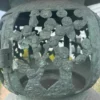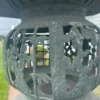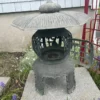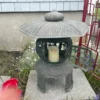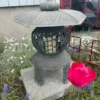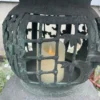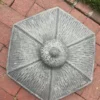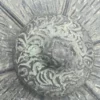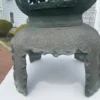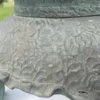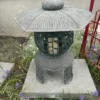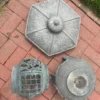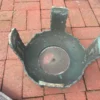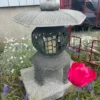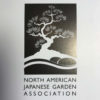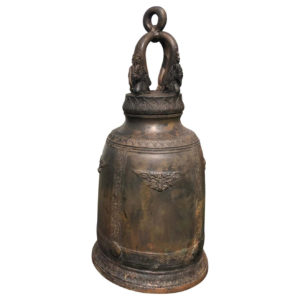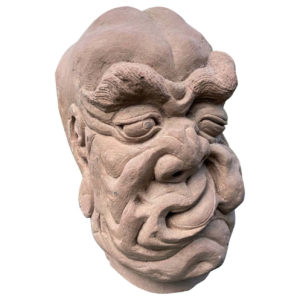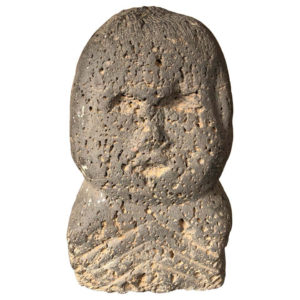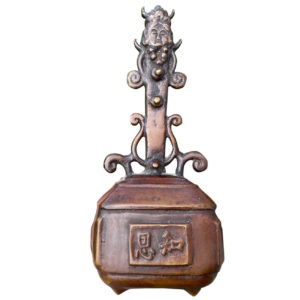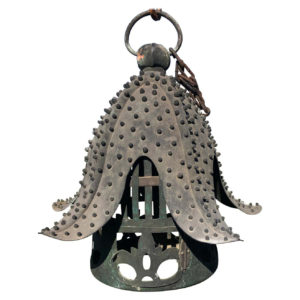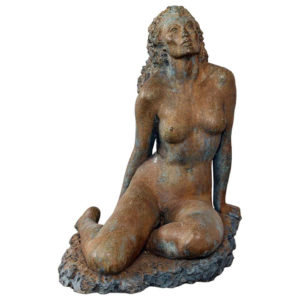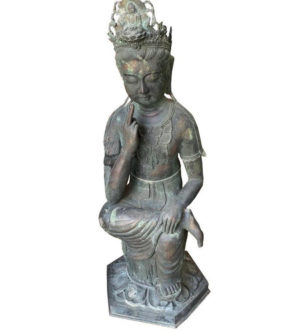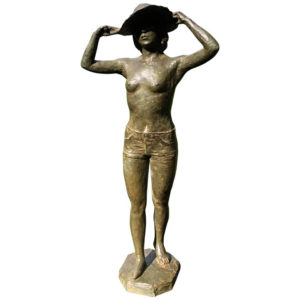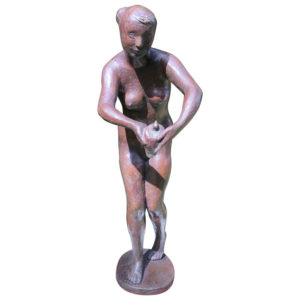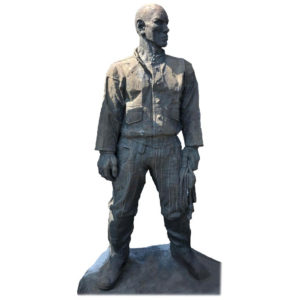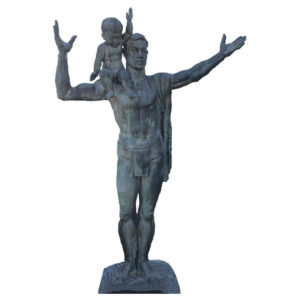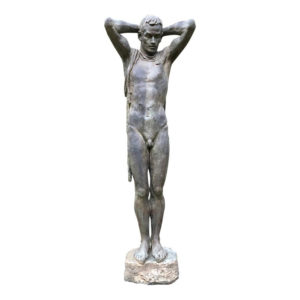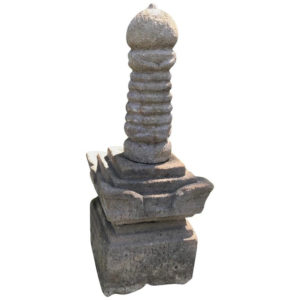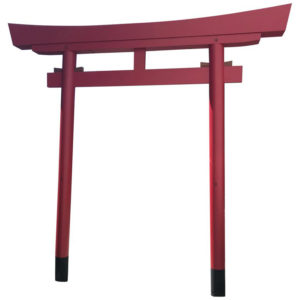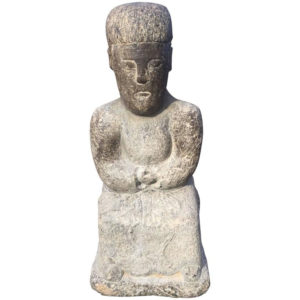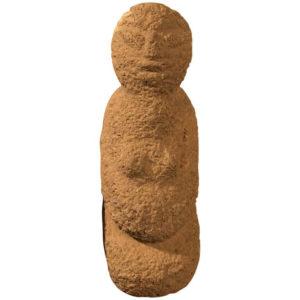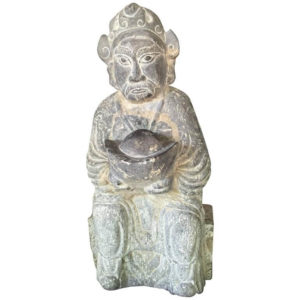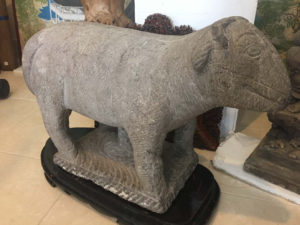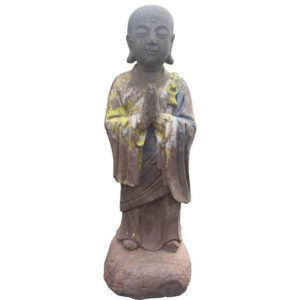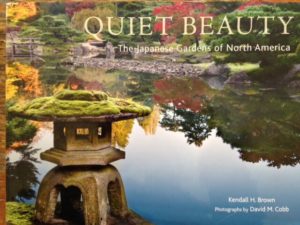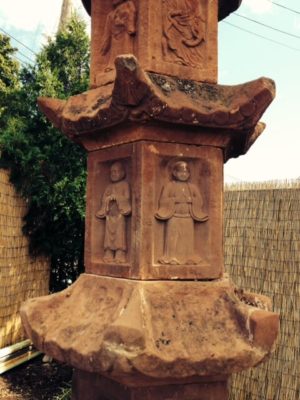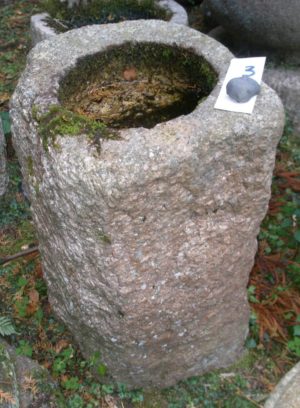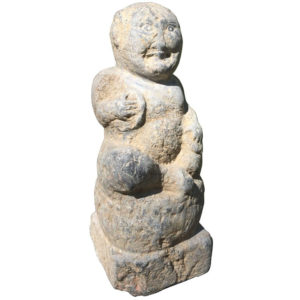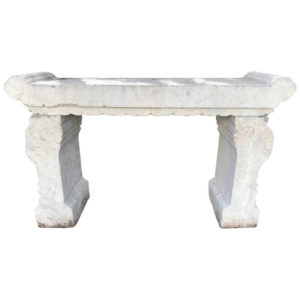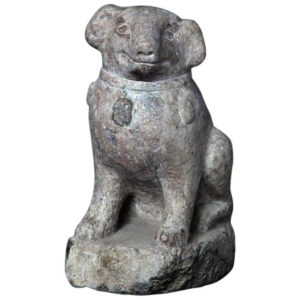Japan Old Bronze Lantern with Exquisite Details, 24″h
$2,500.00
Sold Out
Lifetime GuaranteeEmail to a friend
Plum and bamboo and trellis side panels
Only One
Japan, a fine large vintage hand cast bronze Yukimi hexagonal top lantern with exquisite details from the early Showa period, 1940s-1950s
The striking and well proportioned old bronze is fashioned from solid green patinated bonze as roof kasa and light chamber or base Hibukuro or kiso all with weatherization and blue green patina from good age.
Notice the lovely detailed roof, legs, and and intricate side panels
Dimensions: 24 inches tall and 21 inches diameter
Hand cast. Hard to find this quality today for the discerning garden or sculpture collection
History of Yukimi lantern:
Yukimi-do-ro or legged lanterns have as a base not a post but from one to six curved legs, and a wide umbrella with a finial either low or absent. Relatively low, they are used exclusively in gardens. The traditional placement is near water, and a three-legged lantern will often have two legs in the water, and one on land but today they enjoy wide spread popularity placed in many different settings and in many different styles of gardens. The umbrella can be round or have from three to eight sides, while the fire box is usually hexagonal.
Yukimi denotes water reflection.
Lifetime guarantee of authenticity. We are members of NAJGA- North American Japanese Garden Association.
We have been dealing in authentic Japanese, Chinese, and fine Asian art, garden ornaments, lanterns and water basins for 25 years. Our president personally travels to Japan, China, and Europe each year to meet his network partners who assist him in finding best examples. He personally inspects each antique work of art to ensure its old age, authenticity and quality condition.
About Japanese stone lanterns.
Japan’s stone lantern tradition is a concept that was imported from India and has existed in Japanese temples and gardens since the 7th century.
Japan’s lantern tradition was originally conceived as entrance lighting and guardians to temples and pagodas and when lit served as an offering to Buddha. Some of the earliest stone lanterns were carved with Buddhist images on the firebox and usually had compartments for an oil lamp or candle. Later on, they became more secular in nature, and their use evolved as functional and decorative elements in traditional Japanese tea gardens where they served as a spiritual source of light for evening tea ceremonies. Often carved from granite stone, today’s vintage survivors serve as fashionable aesthetic elements in modern day Japanese and Asian inspired gardens. Today, during festivals and ceremonies, rice paper is often cut to fit stone lantern windows to increase reflection of candles placed inside them. Soon these paper lenses disappear and for one special evening and event, the glow is surreal. Plum and bamboo side panels
Only One
Japan, a fine large vintage hand cast bronze Yukimi hexagonal top lantern with exquisite details from the early Showa period, 1940s-1950s
The striking and well proportioned old bronze is fashioned from solid green patinated bonze as roof kasa and light chamber or base Hibukuro or kiso all with weatherization and blue green patina from good age.
Notice the lovely detailed roof, legs, and and intricate side panels
Dimensions: 24 inches tall and 21 inches diameter
Hand cast. Hard to find this quality today for the discerning garden or sculpture collection
History of Yukimi lantern:
Yukimi-do-ro or legged lanterns have as a base not a post but from one to six curved legs, and a wide umbrella with a finial either low or absent. Relatively low, they are used exclusively in gardens. The traditional placement is near water, and a three-legged lantern will often have two legs in the water, and one on land but today they enjoy wide spread popularity placed in many different settings and in many different styles of gardens. The umbrella can be round or have from three to eight sides, while the fire box is usually hexagonal.
Yukimi denotes water reflection.
Lifetime guarantee of authenticity. We are members of NAJGA- North American Japanese Garden Association.
Our gallery based in Newport, Rhode Island USA has been dealing in authentic Pre-Columbian, Japanese and fine Asian art, garden ornaments, lanterns and water basins for 25 years. Our president personally travels across America as well as Japan and Europe each year to meet his network partners who assist him in finding best examples. He personally inspects each antique work of art to ensure its old age, authenticity and quality condition.
We have been dealing in authentic Japanese, Chinese, and fine Asian art, garden ornaments, lanterns and water basins for 25 years. Our president personally travels to Japan, China, and Europe each year to meet his network partners who assist him in finding best examples. He personally inspects each antique work of art to ensure its old age, authenticity and quality condition.
About Japanese stone lanterns.
Japan’s stone lantern tradition is a concept that was imported from India and has existed in Japanese temples and gardens since the 7th century.
Japan’s lantern tradition was originally conceived as entrance lighting and guardians to temples and pagodas and when lit served as an offering to Buddha. Some of the earliest stone lanterns were carved with Buddhist images on the firebox and usually had compartments for an oil lamp or candle. Later on, they became more secular in nature, and their use evolved as functional and decorative elements in traditional Japanese tea gardens where they served as a spiritual source of light for evening tea ceremonies. Often carved from granite stone, today’s vintage survivors serve as fashionable aesthetic elements in modern day Japanese and Asian inspired gardens. Today, during festivals and ceremonies, rice paper is often cut to fit stone lantern windows to increase reflection of candles placed inside them. Soon these paper lenses disappear and for one special evening and event, the glow is surreal.
Item Details
- Dimensions: N/A
Related Art
(802) 279-7601
(802) 279-7601
(802) 279-7601
(802) 279-7601
(802) 279-7601
(802) 279-7601
(802) 279-7601
(802) 279-7601
(802) 279-7601
(802) 279-7601
(802) 279-7601
(802) 279-7601
(802) 279-7601
(802) 279-7601
(802) 279-7601
(802) 279-7601
(802) 279-7601
(802) 279-7601
(802) 279-7601
(802) 279-7601
(802) 279-7601
(802) 279-7601

